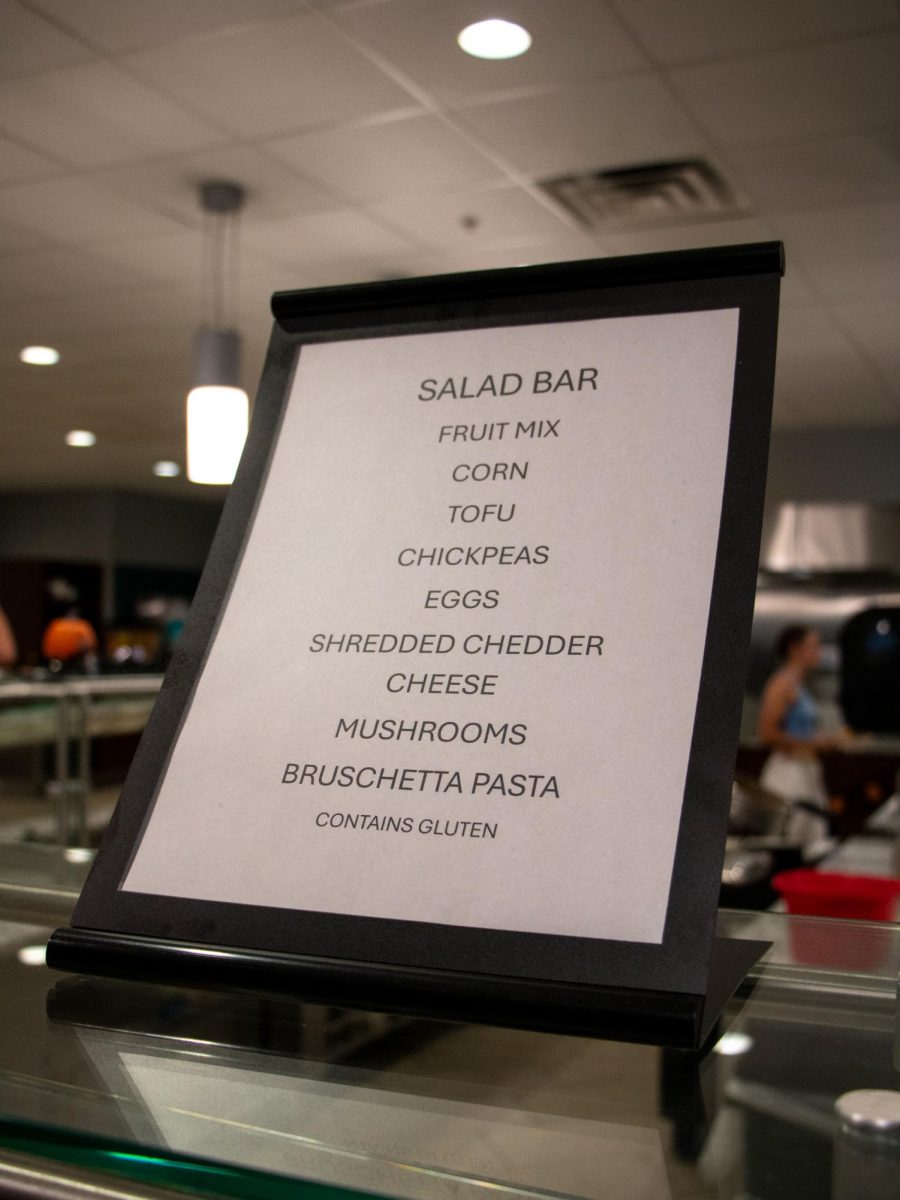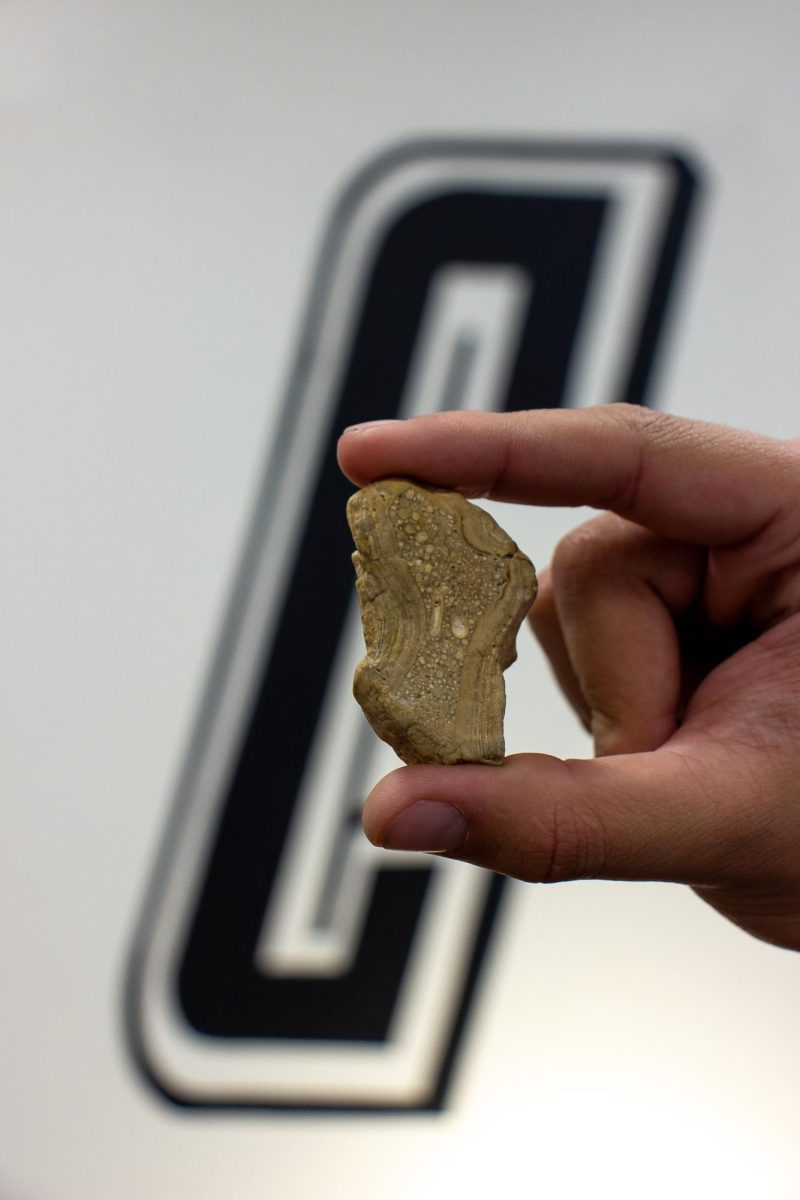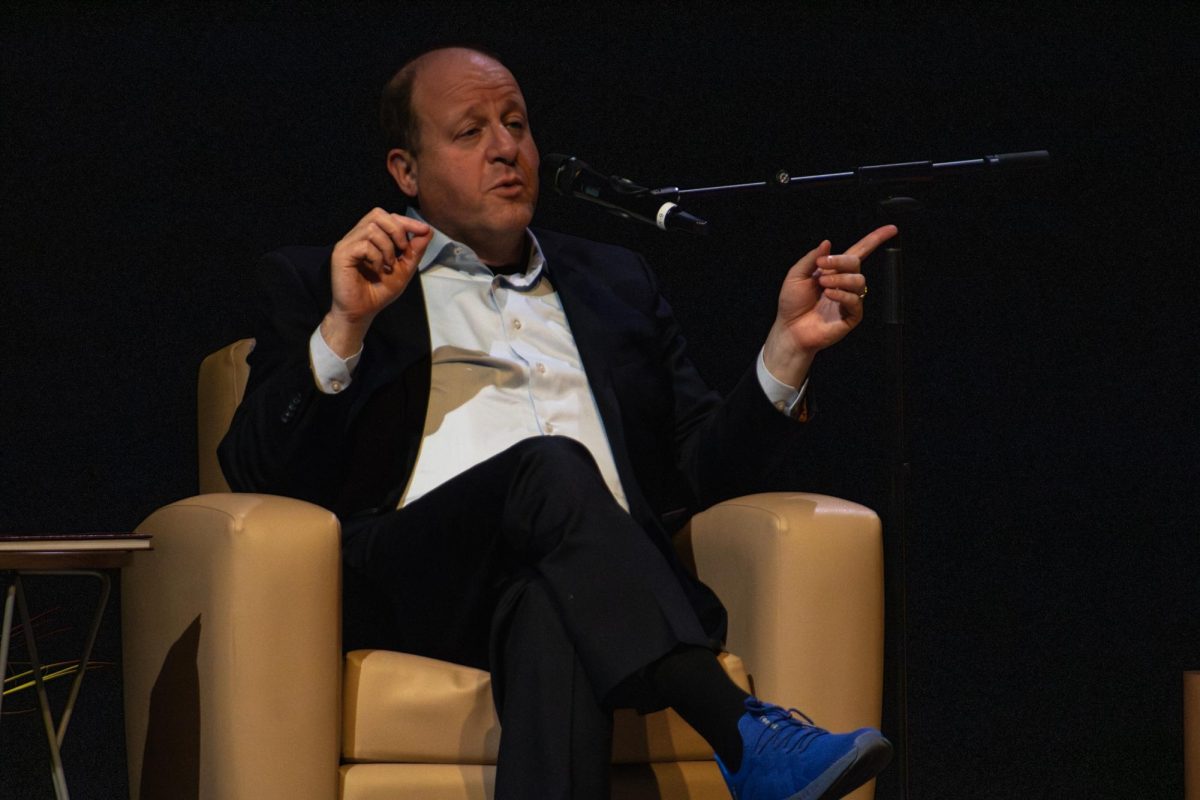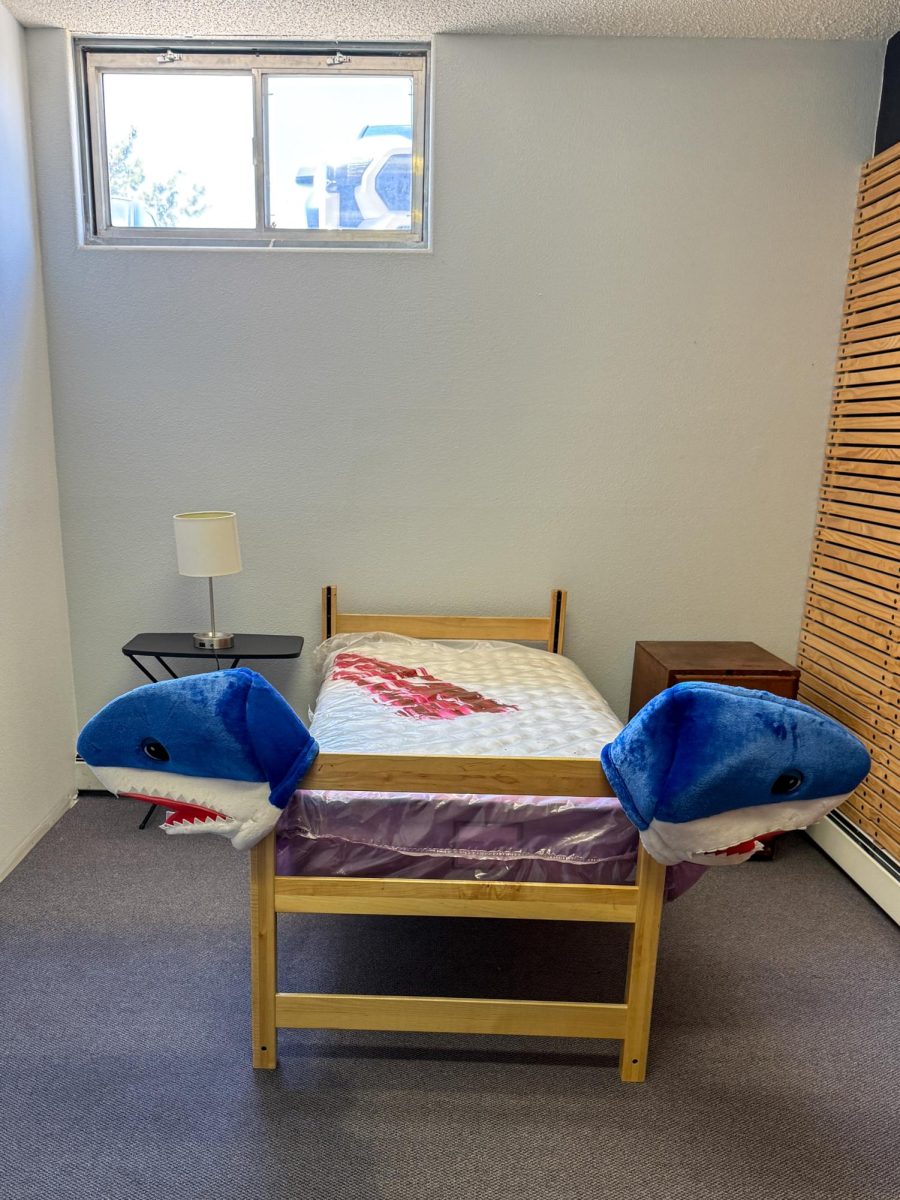An event made completely free of cost to students, thanks to the collaboration of the campus community, The Maverick Mind Conference saw a group of 150 Colorado Mesa University (CMU) students gathered in the University Center (UC) ballroom for an event exploring the dynamic functions of the human mind.
The conference took place on Friday, Jan. 31, offering attendees a unique opportunity to engage with expert speakers, participate in interactive sessions and gain valuable insights into essential life skills.
The event welcomed six speakers, four being guests under the organization Broaden Your Spectrum, who led discussions on topics such as social and emotional awareness, financial literacy, resume building, stress regulation and executive functioning. Each speaker brought in their own area of expertise, ensuring students were exposed to a diverse range of perspectives and practical advice.
The six speakers included Owner of The Engagement Catalyst Dr. Sara Colorosa, professional coach and trainer Kayleen Allen, Licensed Counselor Dan Turbeaugh, Occupational Therapist Heather Ackart, TRIO Advisor Brad Krebill and TRIO Advisor Emma Early.
These speakers’ diverse backgrounds allowed for multidimensional discussions that encouraged students to think critically about their own development and potential to influence others.
“The Maverick Mind Conference was the first of its kind at CMU. It was hosted by the TRIO Support Services team through the CMU First-Gen+ Support Center. The conference aimed to host First-Gen+ students, TRIO students, and was opened across campus for multiple student groups,” said Early.
“It was a great opportunity for students to learn and experience the ins and outs of conferencing, gain knowledge and insight about neurodiversity, attend an fun, yet complex etiquette luncheon, and various breakout sessions.”
The keynote presentation took students on an in-depth exploration of disabilities, specifically focusing on the silent disabilities that often accompany neurodiversity. Speakers gave insight into these issues with a goal for students to walk away with a deeper understanding and awareness of social differences.
“For me, I was not aware of the number of disorders that were associated with neurodiversity.Everything from OCD, ADHD, Aspergers, Autism, Dyslexia, Tourette’s syndrome and dyscalculia to name a few, are all examples of individuals who have some level of neurodiversity. Some of them have excess energy that they need to release in order to concentrate, which can manifest itself in the person bouncing lightly in their chair, or using fidget devices,” said Krebill.
“Routines are generally very important to them, and variations in their routine can be a huge source of stress. However, even individuals considered neurotypical, can all think differently than others, so it’s a very complex issue. Awareness of the issue is the first step in understanding that no two individuals think alike and are influenced in their decision making by many factors.”
CMU takes pride in the diversity of its campus body and fostering a culture of inclusion, having hosted several events promoting values such as civil discourse and respectful conversation between students from different backgrounds.
The conference also featured several breakout sessions, allowing students in attendance to choose three out of five options.
Each session focused on equipping students with practical skills they could apply in both academic and professional settings. One was held in the UC and covered how to write a resume that showcases an individual’s strengths.
Another taught students about the fundamentals of communication and provided strategies for navigating conflict in a constructive manner. This session helped attendees identify their own communication styles and preferences.
There was also a session on stress management, led by Emma Early, that provided practical strategies to cope with stress and boost well-being, while another covered the support offered by occupational therapists to help young adults strengthen executive functioning skills.
The final breakout session, led by Krebill, gave students the opportunity to reshape how they understood money and financial responsibility, a topic that tends to go overlooked in young college-aged adults due to anxiety and misunderstanding.
This session offered tips for budget management, credit building and planning for long-term financial stability.
“One of the primary goals of this conference was for the students to gain real world experience in navigating a professional conference,” said Krebill.
“This is especially helpful for those individuals who may be considered neurodiverse. Most industries host networking and development conferences, and understanding the expectations and behaviors required in these spaces is a learned skill. Many students miss out on these opportunities due to travel or financial barriers, so this was a great opportunity for those students.”
Aside from numerous workshops and breakout sessions, the Maverick Mind Conference also provided opportunities for students to strengthen their social networking skills by engaging with peers and professionals during a free etiquette luncheon.
This experience not only encouraged students to make meaningful connections, but also helped them to gain confidence in formal networking environments, a crucial skill for career success.
“I am confident the students who experienced the conference left having more insight about the world and people around them, knowing a bit more about themselves and their needs and feeling more connected to one another and CMU,” said Early.
“Our hope at the First Gen+ Support Center is that this experience will open opportunities for students to be curious about themselves, those around them, and help prepare them for future opportunities in conferencing and learning in professional settings.”
The event was brought by the new First-Gen+ Support Center, Student Life, CMU Scholarship Communities and Broaden Your Spectrum.









Judy Cruell • Feb 24, 2025 at 3:24 pm
Very good article !